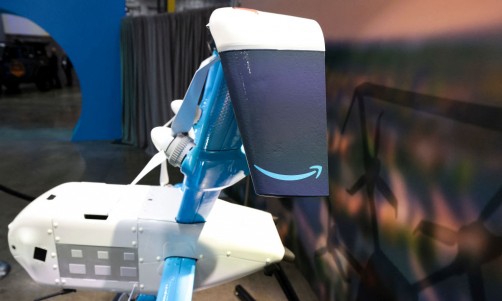Commercial door lock solutions, such as card readers in hotels, have been gaining popularity for many years now, but now, the shift towards taking access control mobile is in full swing.
In light of recent technological advancements, coupled with the heightened health and security needs brought about by the pandemic, the Internet of Things is sending everything mobile - including commercial door entry security.
How do commercial electronic and smart door locks work?
Electronic door locks rely on either a wired or wireless power source to activate the locking and unlocking mechanism. Magnetic door locking systems operate on a low-voltage power supply to keep a commercial door locked, and disabling that lock requires the presence of an authorized credential. In other words, an authorized user must present their permission information by way of, for example, an encoded key fob to trigger the unlocking.
Most modern electromechanical locks, like wireless commercial door locks, are controlled via signals received from cryptographic keys and over-the-air devices. These cutting-edge commercial access systems are typically Wi-Fi, or Bluetooth enabled, allowing for the additional benefit of being compatible with virtual keys. Thus, instead of needing any kind of physical key or credential-encoded item, commercial keyless smart locks can be opened via a Cloud Key Credential or a mobile application.
Given that these smart locks rely on either Bluetooth or the internet to function, it is essential that they feature a built-in fail-safe/fail-secure technology to allow for any power outage issues. Fail-secure commercial smart door locks remain locked during power outages, while the fail-safe versions will unlock and allow access to anyone during a loss of internet access.
These smart commercial locking systems should also feature a backup battery in order to ensure that the door maintains full functionality during a power loss, so that it can still be locked or unlocked. Without backup power, these locks could be paired with a manual lock to retain functionality.
Types of smart door locks
Similar to residential smart locks, commercial smart locks feature added flexibility options such as keyless entry and remote system management, and there are a variety to choose from. Given that commercial smart door locking systems are typically designed to cater for thousands of users, they often come with additional security features to further protect and scale with significant commercial developments.
Commercial keypad and combination locks
Keypad door locks for commercial premises operate by users typing in a code on a keypad. These locks can be configured with either one PIN code for everyone to use, or a unique PIN code assigned to each individual authorized user. This makes them particularly popular in commercial buildings that require heightened security.
Commercial smart keyless door locks
Keyless entry options are growing in popularity when it comes to commercial smart lock systems, with one of the key benefits being that users do not need a physical key to gain access. Instead of a physical key, commercial RFID (Radio Frequency Identity) door locks can use encrypted key fobs or cards or mobile app credentials.
Another one of the primary benefits of keyless door locks for commercial spaces is the simplicity in managing the system. For example, if a user loses their credentials or a staff member leaves the business, access permissions can be revoked with a click of a button, and the updates take immediate effect. No more changing the locks when keys are misplaced or stolen.
Unprecedented flexibility in security management
Commercial smart door locking systems allow for unprecedented ease of management. Given that they connect to the internet, management can handle every aspect of the system's operational control remotely. For example, business owners or property managers can instantaneously lock or unlock the door and change authorized access details from anywhere.
Smart security options
Integrating access control systems with other building security technologies can optimize the effective management of security in profound ways. Not only does it allow for easier more streamlined management, but successful integration across all key securities can enable managers to operate their security systems entirely virtually.
The Internet of Things has been paving the way for smart home design for some time now, and the commercial sector is now quickly catching up. Intelligent building security design can integrate access control systems with sensors, cameras and alarms for a more comprehensive security management.
Using smart locks in addition to video cameras
The greatest security standard combines smart technology and keyless entry systems with a video reader. Providing security personnel with video cameras allows them to make more informed decisions and respond more accurately and swiftly to security threats.
The future of security is smart
Technology is evolving rapidly, and while the Internet of Things (IoT) has been growing the smart device industry for some time now, the implementation of mobile access control systems for the commercial sector is becoming mainstream - and fast. Moreover, with instantaneous remote management, these systems allow for greater security and flexibility than many ever thought possible.














